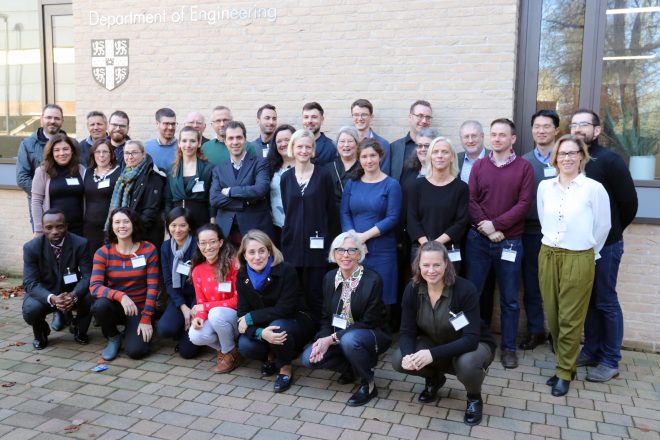- 20 December 2018
- 3 min read
- 7 October 2021
- 4 min read
Designing a better, safer health system is not going to happen in isolation. The challenges in healthcare are complex, and involve many interconnected parts. If you really want to have an impact, you cannot do it alone.
As engineers researching the design and management of complex organisational and technological systems, we recognise the need to work together. So we have always been eager to present and discuss health systems design research at engineering and design conferences. But while attending these meetings over the past few years, we were often struck by the limited healthcare content or the narrow perspective taken on healthcare problems and solutions. We felt that healthcare needed design, but it also needed other disciplines in order to address modern challenges.
Over time, we found that there were others like us who are passionate about healthcare systems design in several disciplines and branches of engineering and systems design more broadly. Could we bring them together? And what sort of impact could we collectively make on health systems around the world?
We took the first step in answering those questions on 29-30 November in Cambridge, when THIS Institute partnered with the Cambridge Engineering Design Centre and the Engineering Systems division of the Technical University of Denmark (DTU) to host an international meeting on healthcare systems design research.
It turns out there are lots of people like us. What we first envisioned as a small gathering of about 15 people ended up attracting 34 researchers from eight countries and a diverse range of backgrounds – from engineering to operational research, management or human factors and ergonomics. And many felt that this kind of gathering was long overdue.
“It’s about time we brought these different threads together, learned more from each other, and gained strength form learning across disciplines,” said Professor John Clarkson, director of the Engineering Design Centre and one of the meeting’s chairs.
The two days we spent together provided a glimpse of our potential impact. We looked at some of the common challenges faced by health systems through the eyes of the people affected, and brainstormed about how to address them at a systems level. Each researcher brought their own strengths and their own unique approaches to solving the problems.
The meeting helped us confirm what many of us suspected: our disciplines have much more in common than we sometimes realise.
We also discussed the history of systems approaches in healthcare, expressed our commitment to using our disciplinary backgrounds to improve healthcare systems, and just got to know each other.
“I feel energised,” said Dr Kathy Kotiadis of the University of Kent, whose background is management science. “I feel I can learn from everybody here. I’m interested in the variety of opinions and the different approaches. I’m really keen for us to come together for specific work.”
We know that one meeting is not going to break down traditional disciplinary boundaries between systems design research groups, and we are clear that there are challenges ahead. Different disciplines often speak different languages, and we need to develop a common understanding moving forward.
But the meeting did allow us to draw an initial roadmap for the future of our community. And it helped us confirm what many of us suspected: our disciplines have much more in common than we sometimes realise, and collaborating is essential if we are going to tackle the complex challenges facing the world’s health systems.
“Systems design is about bringing elements together and connecting,” said Professor Anja Maier, Head of the Engineering Systems Division of the Technical University of Denmark, the meeting’s other chair. “It’s about creating something new in ways that may not have been possible if you just looked at the individual components.”
After an exciting two days of intense discussions, we are now analysing the outcomes of the workshop. This will inform our next actions to take this community further, to enable more collaborations and stronger impact on improving healthcare delivery.
